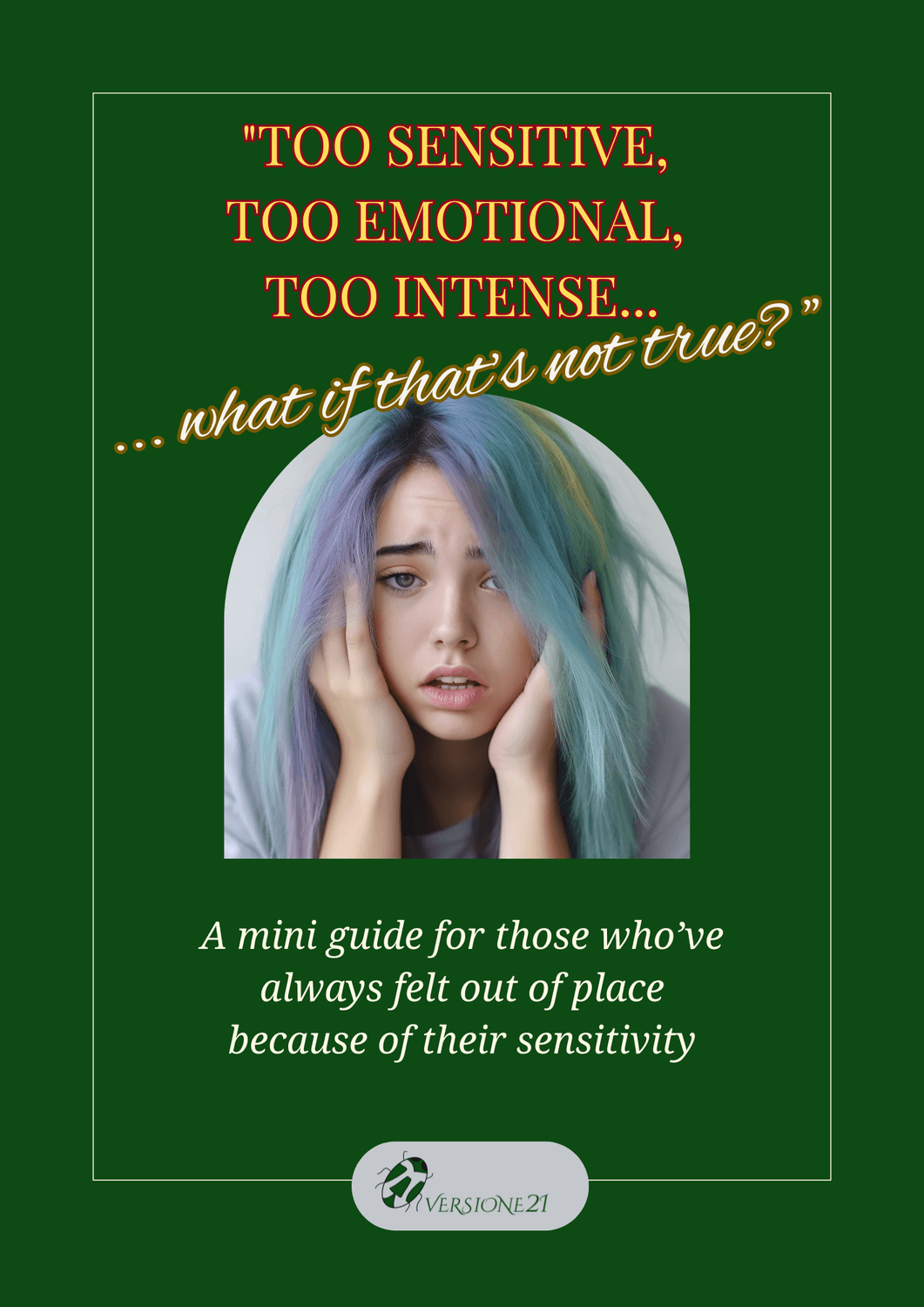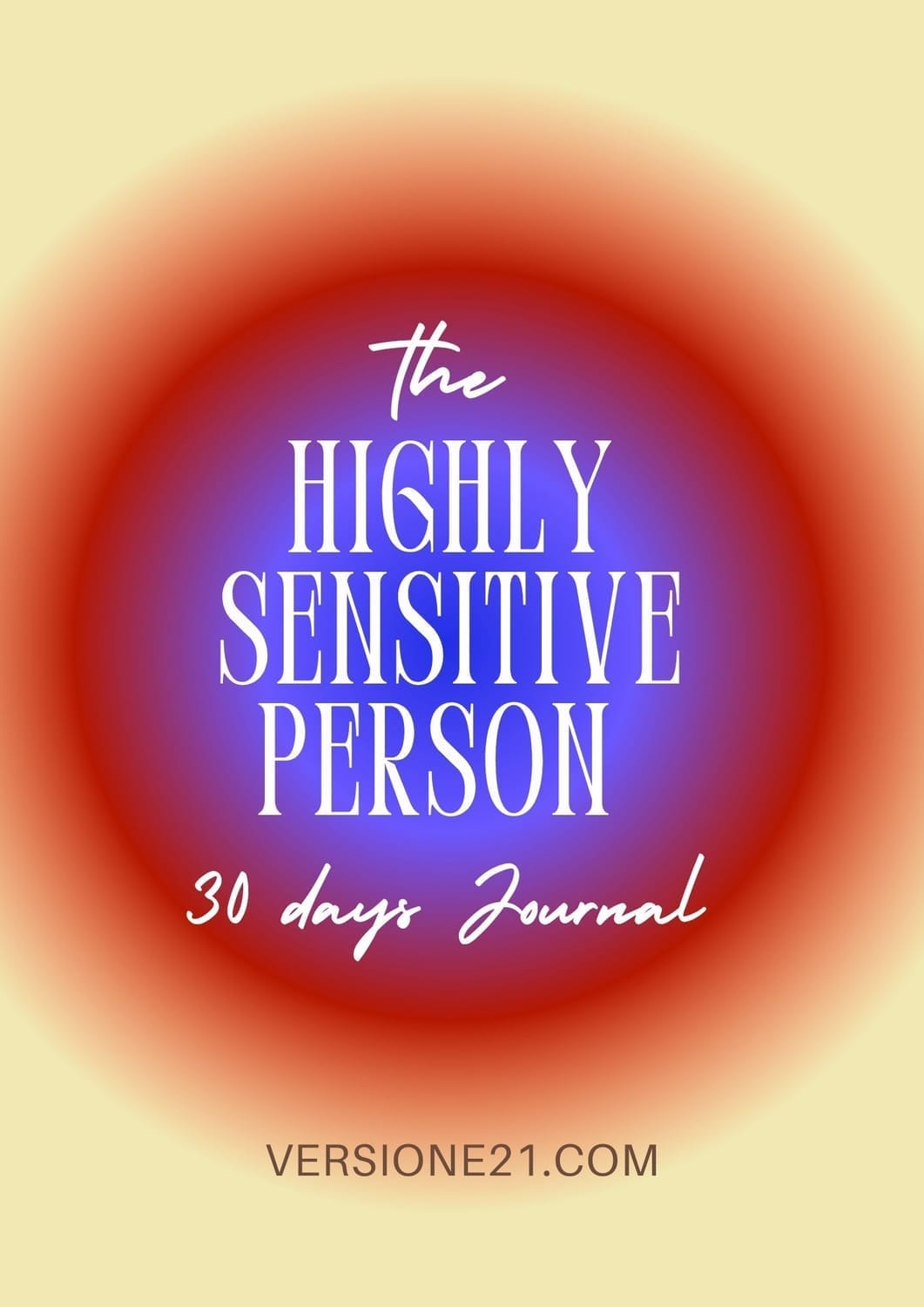Understanding High Sensitivity: Embracing Your Unique Strengths
Updated on February 16, 2026
As a highly sensitive person (HSP) myself, I’ve come to experience how often this trait is misunderstood and undervalued. From an early age, I felt different—like the world was louder, brighter, and more intense for me than for those around me. Whether it was the noise of crowded rooms, the emotional tension in conversations, or the constant flood of information, I often felt overwhelmed.
It wasn’t until I began helping a friend of mine that i discovered the work of Dr. Elaine Aron on high sensitivity.
It changed my perspective and allowed me to see that I wasn’t alone and I learned to embrace my sensitivity as a powerful gift.
In fact, approximately 15-20% of the population shares this trait, and it comes with remarkable strengths. In my practice, I’ve seen how learning to embrace high sensitivity can transform not only how we see ourselves but also how we navigate the world.
This post aims to explore the nature of high sensitivity, challenge the misconceptions around it, and offer ways to embrace your unique strengths as an HSP.

Highly Sensitive Person Meaning and Definition in Psychology
The term “highly sensitive person” (HSP) was coined by psychologist Dr. Elaine Aron in the mid-1990s, following extensive research into this personality trait. High sensitivity is not a disorder, but rather a genetic trait found in about one in five people. HSPs experience the world differently because of how their nervous systems are wired. Essentially, they process sensory input more deeply and feel emotions more intensely than others.
Dr. Aron outlines four key characteristics that define the HSP trait, often summarized by the acronym DOES:
Depth of Processing: HSPs reflect deeply on their experiences, often thinking through events, emotions, and situations more thoroughly than others. This introspection can lead to greater insight, but it can also result in overthinking or rumination if not managed well.
Overstimulation: Because HSPs take in more sensory information, they can easily become overwhelmed by stimuli such as bright lights, loud sounds, or chaotic environments. This can make busy places or high-pressure situations particularly challenging.
Emotional Reactivity and Empathy: HSPs tend to have heightened emotional responses, not only to their own experiences but also to the emotions of others. This makes them deeply empathetic, often able to sense and understand the feelings of those around them.
Sensitivity to Subtle Stimuli: HSPs are often highly attuned to subtleties that others may overlook. This could be anything from noticing a slight change in someone’s tone of voice to detecting small shifts in a room’s atmosphere.
For years, high sensitivity was misread and misnamed.
People saw it as shyness, social anxiety, or emotional fragility. In truth, it’s none of those. High sensitivity is not a flaw. It’s a way of sensing and processing life more deeply. It brings challenges, yes, but also an extraordinary capacity for empathy, intuition, and meaning.

Common Myths About Highly Sensitive People
There are many misconceptions about high sensitivity that can lead HSPs to feel isolated or misunderstood. One common misconception is that sensitivity equals weakness. HSPs may have been told they are “too sensitive” or that they need to “toughen up.” However, the reality is that sensitivity is not about fragility but about deeper processing and greater awareness of the world.
Another myth is that all HSPs are introverted. While it’s true that many HSPs are introverted, about 30% of HSPs are extroverted. Sensitivity and introversion are two different traits that can overlap but are not synonymous.
HSPs are also sometimes seen as being overly emotional or prone to drama, but this is a misunderstanding of emotional depth. While HSPs may feel things more intensely, they are not “making a big deal” out of things—rather, they are responding authentically to the strong emotions they experience.
By debunking these misconceptions, we can begin to shift the narrative around high sensitivity from one of weakness to one of strength.

Strengths of a Highly Sensitive Person in Daily Life and Work
While it’s true that being highly sensitive comes with its challenges, it also provides a wealth of strengths that can enrich your life and the lives of those around you.
Here are some of the most valuable strengths of being an HSP:
Empathy and Emotional Intelligence
As an HSP, your ability to understand and empathize with others is one of your greatest strengths. You’re likely the person friends and family turn to when they need support because you can truly listen and feel their emotions. Your heightened empathy allows you to connect deeply with others, offering a safe space for them to be vulnerable. This can make you an exceptional friend, partner, or caregiver.
Attention to Detail
HSPs often have a remarkable ability to notice subtle details that others miss. Whether it’s picking up on non-verbal cues in a conversation or noticing small changes in your environment, your attention to detail can be a powerful asset. This strength is particularly valuable in careers that require precision, creativity, or emotional attunement, such as counseling, teaching, or the arts.
Creativity and Intuition
Many HSPs are drawn to creative pursuits because of their deep emotional processing and vivid imaginations. Whether you’re a writer, artist, musician, or simply someone who enjoys creative expression, your sensitivity allows you to channel your emotions into something meaningful. Your intuition, another key strength, helps you navigate complex situations and make decisions that align with your values.
Deep Thinking and Reflection
Your tendency to process things deeply means that you’re able to consider all aspects of a situation before making decisions. This can lead to greater insight and wisdom. While some may view deep thinking as overthinking, it’s important to recognize that your ability to reflect deeply is a valuable trait that allows you to approach life thoughtfully and intentionally.

How to Accept and Integrate High Sensitivity
The journey to embracing your sensitivity begins with self-acceptance. Many HSPs grow up feeling as though something is wrong with them, often internalizing the negative messages they receive from others. This can lead to feelings of shame or inadequacy, making it difficult to accept sensitivity as a positive trait.
As a therapist trained in the Person-Centred Approach, I’ve seen firsthand how transformative self-acceptance can be for HSPs. The core of the Person-Centred Approach is about fostering a non-judgmental, accepting relationship with oneself. This is especially important for HSPs, who may have spent years trying to fit into a mold that wasn’t designed for them.
Self-acceptance involves acknowledging your sensitivity as a key part of who you are, rather than something that needs to be fixed or hidden. It’s about giving yourself permission to feel deeply, to need more rest, and to require environments that support your well-being. When you begin to embrace your sensitivity, you open the door to a more fulfilling and authentic life.
If you feel that you need support here the different ways how I can help you!

Practical Strategies for Highly Sensitive People
Learning to thrive as a highly sensitive person requires a balance of self-awareness, self-care, and boundary-setting.
Here are some practical tips to help you navigate life as an HSP:
Practice Journaling
Journaling is an excellent tool for processing your thoughts and emotions. It allows you to reflect on your experiences, identify patterns, and release any overwhelming feelings. Try setting aside time each day to write about your thoughts and feelings—this can help you gain clarity and reduce mental clutter.
I created this journal especially for HSP ( digital version or paper version) : https://www.versione21.com/30daysjournalhsp
Surround Yourself with Supportive People
Not everyone will understand your sensitivity, but it’s important to cultivate relationships with people who do. Surround yourself with friends, family, or a partner who values your sensitivity and respects your needs. Healthy relationships are built on mutual understanding and empathy, and as an HSP, you deserve connections that honor who you are.
Balance & Boundaries
Setting boundaries is crucial for protecting your energy. As an HSP, you may find it difficult to say no, especially when you feel deeply for others. However, learning to set limits is essential for maintaining your well-being. Whether it’s declining a social invitation or stepping away from a draining situation, boundaries allow you to take care of yourself while still showing up for others.
Living Well as a Highly Sensitive Person

Being a highly sensitive person is both a challenge and a gift.
When you learn to understand your inner rhythm and honor your natural sensitivity, life starts to feel more aligned and peaceful. Sensitivity is not weakness. It’s a quiet strength that deepens connection, fuels creativity, and sharpens intuition. As you move forward on your path of self-discovery, remember that living in tune with your sensitivity is how you begin to thrive, even in a world that sometimes overlooks it. Your sensitivity is not too much; Your sensitivity is what makes your presence meaningful.
Contact me if you have questions at info@versione21.com , I'll be happy to answer you!
If you identify as a Highly Sensitive Person and would like to explore specific aspects of your experience, here are additional articles to help you better understand yourself and protect your energy.
• 8 Signs You Are a Highly Sensitive Person
• The Importance of Saying No as an HSP
• Anxiety and Emotional Overload in Highly Sensitive People
FQA
A Highly Sensitive Person is someone whose nervous system processes sensory and emotional information more deeply. This trait is not a disorder. It is a natural temperament found in around 15 to 20 percent of the population.
No. High sensitivity is a personality trait, not a diagnosis. It can increase vulnerability to stress if unsupported, but it is not anxiety, depression, or a disorder in itself.
No. Around 30 percent of Highly Sensitive People are extroverts. Sensitivity and introversion are separate traits.
Highly Sensitive People take in more information from their environment and process it deeply. When stimulation is intense or prolonged, their nervous system can become overstimulated.
Yes. High sensitivity is linked to empathy, intuition, creativity, depth of thinking, and strong emotional awareness. With self-understanding and boundaries, it becomes a stable strength.

Simona D'Isanto
Author
Hi, and welcome to my blog!
Here, I share insights and resources to support your emotional well-being and personal growth.
I also offer individual and group sessions in psychotherapy, coaching, and sophrology — tailored especially for Highly Sensitive People (HSPs).
I’m here to support you in English, French, or Italian. Feel free to explore the website in the language that feels most comfortable for you.
👉 Click here to discover how we can work together
👉 Click here to download my new free guide for Highly Sensitive People :
👉 Click here to buy my journal for Highly Sensitive People :
Follow me
© 2026 Versione21, Simona D'Isanto SIRET : 839 889 995 00016
"Conformément aux articles L.616-1 et R.616-1 du code de la consommation, nous proposons un dispositif de médiation de la consommation. L’entité de médiation retenue est la CNPM Médiation Consommation. En cas de litige, vous pouvez déposer votre réclamation sur son site https://www.cnpm-mediation-consommation.eu/ ou par voie postale en écrivant à CNPM Consommation, 27 avenue de la Libération 42400 Saint-Chamond"









